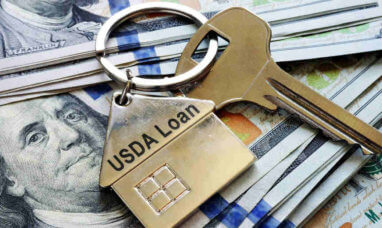Don’t give up if you’re sick of renting but don’t have great credit. It is, in fact, feasible to get a mortgage with bad credit. Lenders are aware that not everyone is financially stable. Life takes place! You shouldn’t be prevented from buying the home of your dreams because you have bad credit. You can take advantage of possibilities out there, so don’t worry. Ideally, one of these choices will assist you in becoming eligible for your own mortgage.
Here is a fast method to help you identify mortgage opportunities even if your credit score is low. A few applications could lead to the purchase of your new home.
What Does “Poor Credit” Really Mean?
One of the three major credit bureaus, Experian, classifies credit scores between 300 and 579 as “poor” and scores between 580 and 669 as “fair.” The good news is that mortgage lenders frequently take a broad view. They utilize your credit score as a place of departure. They might also consider your debt-to-income ratio, the amount of a down payment you can afford, and any other items that have been reported on your credit report. This contains both good and bad entries that could impact your capacity to get a loan. Therefore, if your credit score isn’t 700 or above, try not to get discouraged.
The Impact Of Bad Credit On Your Mortgage
Before now, we said that people with bad credit could anticipate higher loan rates. But if you’re looking for a mortgage with a less-than-perfect score, what else can you anticipate?
It’s all about neutralizing your score in this game. This means that you’ll need to have additional money on hand to make a sizable down payment. Consider it a concrete approach for a lender to have confidence that you will pay your debts on time.
You can also be asked for your rental history. This can be a useful addition to your mortgage application if you don’t have much credit history. Low credit scores might also be the result of undeveloped credit. Let’s face it: Having strong financial habits over time helps you build credit. A lack of credit history, rather than a string of poor financial choices, may cause a low credit score.
You could also need to obtain a co-signer. As the cosigner stands behind you, this is only another technique to demonstrate to the lender that you’re serious. However, if you cannot make the payments, they will be in charge (and their credit report will be affected too). Pick a cosigner carefully.
Crossroads of Credit: Purchase Now or Raise and Save
Should you attempt borrowing despite having a low credit score now? Or invest some time, ideally a year or two, to improve that score to be eligible for lower rates? It’s a challenging question with a variety of solutions.
Your savings may occasionally improve if you wait and raise your score. But are you prepared to delay taking possession of the house keys and claiming a place as your own? What your long-term objectives are will ultimately reveal the answer to this query.
Making a joint mortgage application is an additional factor to take into account. According to the Mortgage Calculator, joint borrowers who apply for a mortgage jointly may pay a greater interest rate than they would individually. This can occur when one partner’s score is much lower than the other. Couples may benefit more from applying for a mortgage with a higher credit score to be eligible for a reduced interest rate.
How to Get a Mortgage Despite Having Bad Credit
You have a few options to get a mortgage despite having bad credit. If you think one of the choices would suit your scenario, further investigate it.
FHA Loans
The Federal Housing Administration (FHA) loan is one of the most widely used methods for getting a mortgage with less-than-perfect credit. Forbes claims that FHA loans are quicker than conventional loans to provide borrowers a second chance after a bankruptcy or foreclosure and have the second-loosest credit score restrictions behind V.A. loans.
There are two tiers of required down payments, with scores between 500 and 620 generally being the range that is advised. If you’re applying and your credit score is between 500 and 579, you should budget for 10% down; if it’s over 580, the amount drops to 3.5%. Additionally, according to Debt.org, “you will have a difficult time getting accepted if your debt-to-income ratio reaches 45%.” thus, think about your financial situation before applying.
V.A. Loans
A VA loan is only available to “qualified military service members, veterans, and surviving spouses.” However, they claim to have the “most lenient credit score standards.” This is due to the absence of any minimum credit score. The VA loan will eventually be your most costly alternative. Still, Summit Mortgage warns that “there are expenses associated with a V.A. Lending that you will not discover with other loan programs.” For further information, contact the V.A. office in your area.
USDA Loans
Contrary to popular belief, anyone can qualify for a USDA loan; you don’t have to be a farmer or work in agriculture. Instead, it refers to homes located in rural areas. Alternatively, “a region with a population of less than 35,000.” The minimum credit score needed to qualify is 640, but you frequently won’t need to put down any money. An excellent option to finance and own a home in the country is through USDA loans.
Local And State Programs
You may also benefit from, and you should, several state and local initiatives. In many circumstances, first-time homebuyers are eligible for down payment help. Grant programs are also available. Finally, the Neighborhood Assistance Corporation of America (NACA) and Habitat for Humanity are both crucial friends.
How to Negotiate the Mortgage Market
Here are a few things to consider if you want to try your luck in the mortgage market. It will pay you if you take the time to properly study the fine print because you may be a higher risk for lenders.
-
- Don’t take the first offer; instead, shop around. Before making a decision, compare the interest rates and terms offered by several lenders.
- Mortgage brokers may establish contacts: Take full advantage of this resource to learn more about the lenders open to working with you.
- Keep your credit moves small: You should continue making on-time payments on your bills and uphold established habits. If buying a property is on your mind, just don’t ask for additional credit cards or other loans.
- Conduct extensive online research. Check out websites like BadCredit.org, “which maintains an online directory of subprime mortgage lenders,” and see what’s available in your area. Before you purchase, be aware of your options.
- Request a quick rescore: You may be able to do this if your mortgage loan depends on recent credit information that hasn’t yet reached the credit reporting companies. However, you will have to accomplish this through your lender.
Create a New Home in a House
The burden of paying a mortgage may not be the most enjoyable way you have ever spent a lot of money, but going home to a home of your own usually makes up for it. This article should have encouraged you, we hope. It might be simpler than you initially believed to figure out how to enter a residence. Do your homework, manage your money wisely, and you’ll be astonished at how much your diligence has paid off sooner or later. Happy home searching!
Featured Image: Freepik @ our-team






